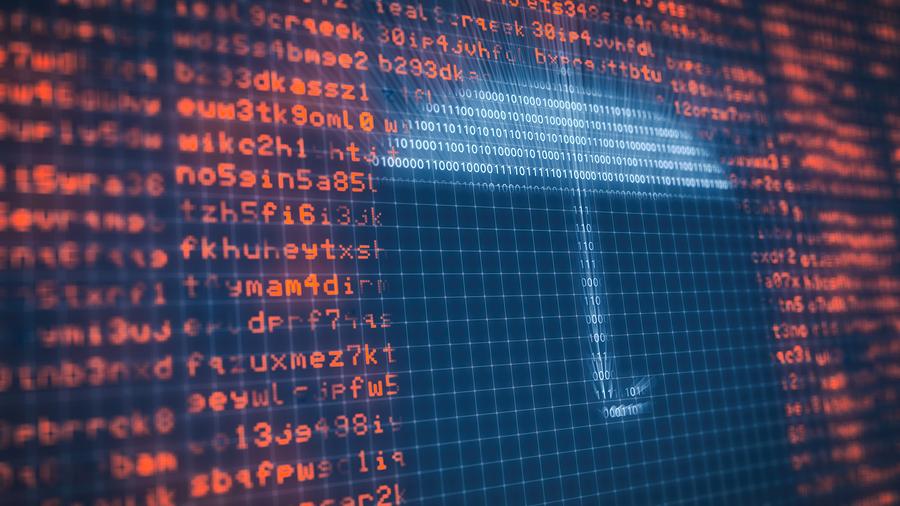Maximizing Cyber Security through Advanced Data Destruction Methods
Maximizing Cyber Security through Advanced Data Destruction Methods
Blog Article
The Essential Nature of Information Devastation in Upholding Computer System Protection Solutions and Protecting Versus Unauthorized Gain Access To
In an age where information violations and identity burglary are significantly prevalent, the significance of reliable data damage can not be overstated. Organizations must identify that the failing to appropriately take care of delicate info postures not only lawful and monetary risks yet additionally a prospective erosion of customer depend on. Various approaches, from information wiping to physical destruction, work as crucial safeguards against unauthorized access. However, understanding the effects of information damage practices and conformity with guidelines increases important inquiries regarding the competence of present techniques and their lasting stability when faced with progressing hazards.
Value of Data Damage
In a significantly digital world, the value of information devastation can not be overemphasized. As companies amass large quantities of delicate details, the potential effects of stopping working to correctly get rid of and manage of that data become increasingly serious. Data breaches, identity theft, and corporate espionage position significant risks, highlighting the requirement of efficient data damage practices.

Additionally, as modern technology develops, so as well do the techniques through which harmful stars seek to exploit delicate details. Organizations should continue to be alert and aggressive in their information destruction methods to guard against these developing hazards. By prioritizing data damage, firms not just secure their properties but likewise foster depend on amongst stakeholders and clients, demonstrating a commitment to accountable information monitoring and security practices.
Methods of Effective Information Damage
To make certain the full and irreversible devastation of delicate data, organizations can use a selection of reliable methods customized to their particular requirements. One of the most typical approaches is information wiping, which includes utilizing specialized software application to overwrite existing information several times, making recuperation essentially difficult. This is especially beneficial for disk drives and solid-state drives, where standard removal methods are inadequate.
Another reliable technique is degaussing, which makes use of solid electromagnetic fields to interrupt the magnetic domain names on storage space media, making the data irretrievable. This method is specifically fit for magnetic storage devices, such as disk drive and hard drives.
Physical devastation is additionally a viable choice, involving the shredding, squashing, or incineration of storage space devices. This method warranties that data can not be recovered, making it ideal for companies managing highly delicate info.

Conformity With Information Security Rules
Organizations must not only concentrate on effective data devastation techniques but likewise make certain compliance with data security regulations that govern just how delicate information is managed and gotten rid of. Abiding by these guidelines is crucial for keeping and guarding personal data customer count on. Laws such as the General Information Defense Regulation (GDPR) in the European Union and the Health And Wellness Insurance Transportability and Accountability Act (HIPAA) in the United States impose stringent standards on data management, that include demands for the protected disposal of delicate info.
To accomplish conformity, organizations have to implement comprehensive information destruction plans that align with these legal structures. This consists of determining information that needs devastation, developing methods for secure methodsâEUR" such as shredding physical media or using software that fulfills market requirements for information wipingâEUR" and maintaining detailed documents of destruction activities. Regular audits needs to be performed to make certain adherence to these policies and to recognize any kind of potential areas for improvement.
Failure to comply with data defense regulations Source can result in significant lawful implications, including significant fines and damages to a company's reputation. Integrating conformity into data destruction methods is not just a legal obligation however additionally an important element of a robust info protection strategy.
Repercussions of Poor Data Handling
Poor data handling can lead to serious consequences that prolong past prompt operational setbacks. Organizations may encounter substantial financial losses as a result of information violations, which frequently result in pricey remediation efforts, legal fees, and regulative fines. These monetary ramifications can stress resources and prevent development, ultimately affecting an organization's profits.
Furthermore, poor information handling can seriously harm an organization's track record. Companions, consumers, and stakeholders might lose count on an entity that falls short to secure delicate information, causing reduced consumer commitment and potential loss of business opportunities. This erosion of depend on can take years to restore, if it can be recovered in any way.
Furthermore, organizations can deal with legal ramifications arising from non-compliance with information defense guidelines. Such infractions may result in fines and examinations, intensifying the monetary concern and further staining the company's picture.
In the realm of cybersecurity, poor information administration practices can develop susceptabilities that make systems much more vulnerable to unapproved gain access to and cyberattacks. Ultimately, these consequences emphasize the critical importance of applying durable data dealing with treatments to protect delicate info and maintain organizational integrity.
Finest Practices for Secure Information Disposal


First of all, data should be categorized according to its level of sensitivity. Delicate details requires much more extensive disposal techniques, such as shredding physical records and making use of advanced software application for digital data cleaning. Utilizing qualified information devastation solutions makes certain compliance with industry guidelines and criteria.
Second of all, organizations should carry out an information disposal plan that mandates normal audits. This plan needs to lay out the treatments for information retention and devastation, making certain that out-of-date information is disposed of promptly and safely. Training workers on these protocols is vital to promoting a society of safety understanding.
Finally, preserving comprehensive records of disposed information improves responsibility and offers a clear audit route. This documentation must consist of the kind of information destroyed, the approach made use of, and the date of disposal.
Conclusion
Embracing durable methods such as information wiping, degaussing, and physical damage, along with compliance with laws like GDPR and HIPAA, is important for protecting sensitive info. Disregarding appropriate information disposal practices can lead to severe consequences, including information violations and lawful consequences.
In an age where information breaches and identity theft are significantly prevalent, the relevance of reliable information destruction can not be overstated. data destruction. Information violations, identification theft, and business reconnaissance posture significant threats, highlighting the requirement of reliable information devastation practices
Compliance with policies such as GDPR and HIPAA mandates that companies execute stringent data security procedures, consisting of the safe and secure destruction of data at the end of its lifecycle.
By prioritizing information devastation, firms not just protect their possessions but additionally foster count on among stakeholders and clients, showing a commitment to accountable data management and security techniques.
Organizations should not just concentrate on discover this info here effective information devastation methods yet also make sure compliance with data defense regulations that regulate exactly how sensitive info is managed and disposed of.
Report this page